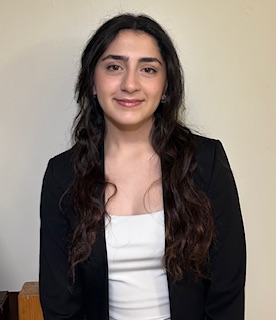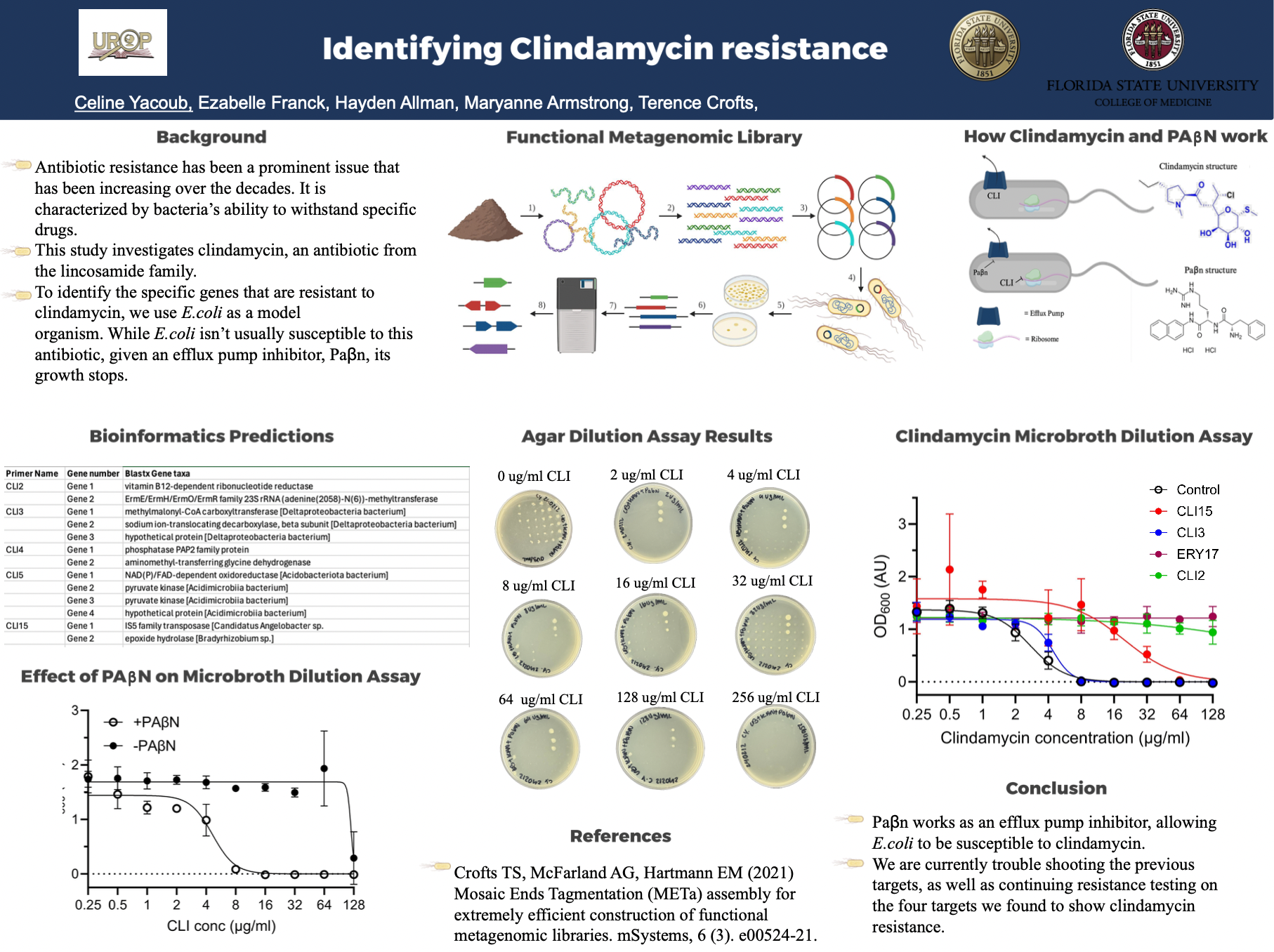Research Symposium
24th annual Undergraduate Research Symposium, April 3, 2024
Céline Yacoub Poster Session 4: 2:45 pm - 3:45 pm /238

BIO
Hi! My name is Céline Yacoub, I am a freshman studying Cell/Molecular Neuroscience and I work in the Crofts lab studying antibiotic resistance. I live in Miami, but I am originally from Lebanon. I hope to one day become a doctor and work with non-profit organizations such as Doctors Without Borders to help people in need who have limited medical access.
Identifying Clindamycin resistance
Authors: Céline Yacoub, Terrence CroftsStudent Major: Cell and Molecular Neuroscience
Mentor: Terrence Crofts
Mentor's Department: Department of Biomedical Sciences Mentor's College: College of Medicine Co-Presenters:
Abstract
Over the past few decades, there has been a rapid increase in antibiotic resistance found in bacteria, which causes individuals to need stronger, more toxic antibiotics making diseases harder to treat. This study investigates clindamycin, an antibiotic from the lincomycin family used to treat various types of infections. Due to its gram-positive characteristic, clindamycin does not affect E.coli proliferation, but when given the efflux pump inhibitor PAβN, its growth stops. Through the use of a functional metagenomic selection and sequencing resistant colonies, mystery genes which give resistance to the bacteria can be identified. Through the amplification of these mystery genes using PCR, and cloning them into plasmids, E.coli clindamycin resistance can be measured. We have now concluded that Paβn works as an efflux pump inhibitor, allowing E.coli to be susceptible to clindamycin. We are currently trouble shooting the previous targets, as well as continuing resistance testing on the four targets we found to shown clindamycin resistance.
Keywords: antibiotic resistance, microbiology, clindamycin,


